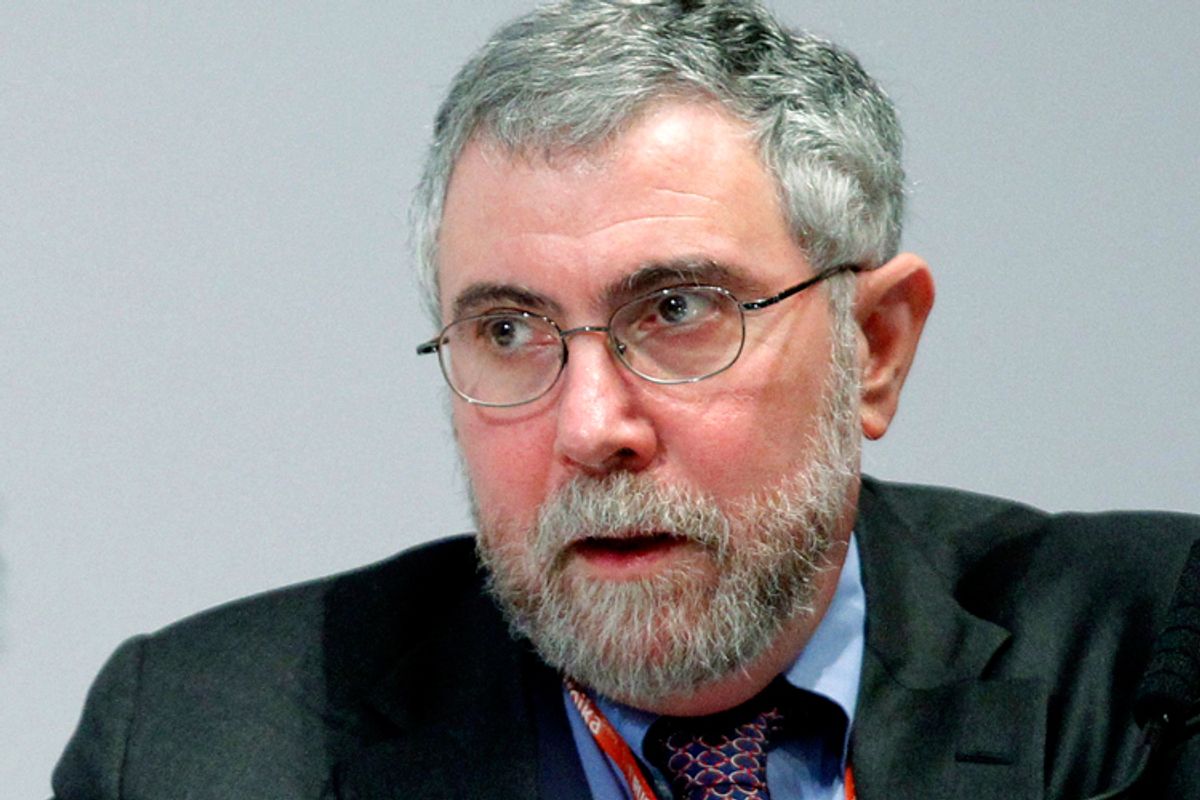This Wednesday, the Congressional Budget Office released its last Monthly Budget Review for fiscal year 2014. Its finding? The federal budget deficit continues to tumble, falling to $486 billion in fiscal 2014 after reaching a high of $1.4 trillion during the financial crisis in fiscal 2009.
So why weren't Alan Simpson and Erskine Bowles running victory laps down the National Mall? That's essentially the question economist Paul Krugman sets out to answer in his New York Times column today.
Deficit scolds like Simpson are reluctantly admitting that the hysterical predictions of imminent economic crisis they made a few years ago haven't come true, but the deficit-obsessed continue to insist that we're headed for a reckoning sooner or later. As Krugman points out, however, the long-run fiscal picture is nowhere near as dire as the deficit scolds have long envisioned. Health care costs, long seized upon by deficit hawks, are coming under control, for instance -- thanks in large part to the Affordable Care Act.
And yet, Krugman observes, "fiscal hysteria" persists. That's because for deficit scolds, a declining deficit is bad for business. In order to push their ultimate agenda of fiscal austerity and social insurance cuts, he argues, deficit hawks need the specter of fiscal catastrophe looming over the nation. Given the ideological proclivities of the deficit alarmist industry's leading backers, it's hard not to find Krugman's take on what really motivates their manufactured panic persuasive.
But what about people who pay a lot of attention to the budget, the self-proclaimed deficit hawks? (Some of us prefer to call them deficit scolds.) They’ve spent the past few years telling us that budget shortfalls are the most important issue facing the nation, that terrible things will happen unless we act to stem the flow of red ink. Are they expressing satisfaction over the fading of that threat?
Not a chance. Far from celebrating the deficit’s decline, the usual suspects — fiscal-scold think tanks, inside-the-Beltway pundits — seem annoyed by the news. It’s a “false victory,” they declare. “Trillion dollar deficits are coming back,” they warn. And they’re furious with President Obama for saying that it’s time to get past “mindless austerity” and “manufactured crises.” He’s declaring mission accomplished, they say, when he should be making another push for entitlement reform.
All of which demonstrates a truth that has been apparent for a while, if you have been paying close attention: Deficit scolds actually love big budget deficits, and hate it when those deficits get smaller. Why? Because fears of a fiscal crisis — fears that they feed assiduously — are their best hope of getting what they really want: big cuts in social programs. A few years ago they almost managed to bully the nation into cutting Social Security and/or raising the Medicare eligibility age; they even had hopes of turning Medicare into an underfinanced voucher program. Now that window of opportunity is closing fast.



Shares